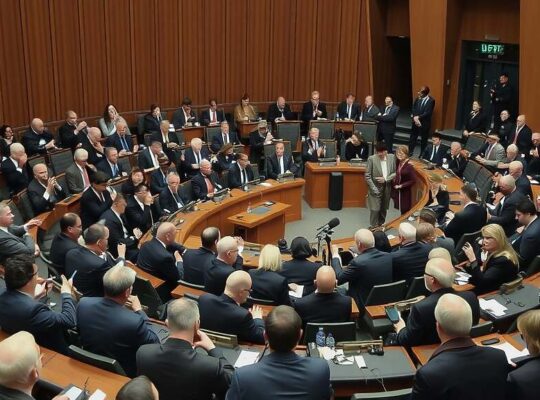A simmering dispute is threatening to fracture Germany’s governing coalition over a proposed levy targeting luxury air travel. The Social Democratic Party (SPD), demonstrating a firm stance, is advocating for a new tax impacting passengers in business and first class, as well as private jet users, ostensibly to fund climate protection and development initiatives. A spokesperson for the Federal Ministry for the Environment, Protection of Nature, Nuclear Safety and Consumer Protection, under Carsten Schneider (SPD), confirmed the plan, with support echoing from the Federal Ministry of Finance, also under SPD leadership.
The initiative responds to a burgeoning movement spearheaded by nine countries, including Spain and France, who intend to present the proposal at the upcoming World Climate Conference in Belém, Brazil. The “Premium Flyers Solidarity Coalition” responsible for the proposal, argues the levy represents a reliable means of generating funds for climate action and international development, addressing a perceived inequity in the current system.
However, the proposal faces staunch opposition from ministries led by the Christian Democratic Union (CDU). The Federal Ministry of Transport, under Patrick Schnieder, dismissed the idea, stating the issue is “not currently relevant”. Other CDU-led ministries, including the Federal Ministry for Economic Affairs and Climate Action, declined to comment, deflecting inquiries to the aforementioned ministries, signaling significant internal resistance. The timing is particularly sensitive, as coalition leaders had recently agreed to abolish an existing aviation ticket tax in 2026, a decision now potentially undermined.
The proposed levy would potentially manifest in two forms: a direct charge on airline tickets for premium cabin passengers or a tax applied to the kerosene consumed by private jets. The coalition emphasizes that individual countries would retain the autonomy to design their respective luxury flight taxes, recognizing existing kerosene taxes in some nations and necessitating alignment with current regulations.
The potential implementation of this tax has ignited a broader debate about fairness and responsibility in addressing climate change. Jennifer Morgan, formerly responsible for international climate policy within the SPD-led coalition government, highlighted growing public awareness regarding the perceived injustice of taxing the activities of high-net-worth individuals and private aviation users. The initiative underscores a rising pressure on political leaders to address climate responsibility across all segments of society.












